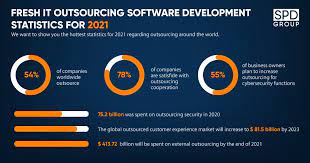Unlocking Business Potential: The Power of Strategic Consulting Services
The Importance of Consulting Services in Today’s Business Landscape
Consulting services play a crucial role in helping businesses navigate the complexities of the modern marketplace. Whether it’s a small startup looking to scale up or a large corporation seeking operational efficiency, consulting firms provide valuable expertise and guidance to achieve their goals.
Strategic Planning and Decision-Making
One of the key benefits of consulting services is assisting businesses in strategic planning and decision-making. Consultants bring fresh perspectives and industry insights that can help organizations identify opportunities, mitigate risks, and make informed choices that align with their objectives.
Specialized Expertise
Consulting firms often have specialized expertise in various areas such as finance, marketing, human resources, technology, and more. This allows businesses to access a diverse range of skills and knowledge that may not be available internally, enabling them to address specific challenges effectively.
Efficiency and Cost-Effectiveness
By engaging consulting services, businesses can improve their operational efficiency and cost-effectiveness. Consultants can identify inefficiencies, streamline processes, implement best practices, and recommend innovative solutions that optimize performance and reduce expenses in the long run.
Change Management
In today’s dynamic business environment, change is constant. Consulting services help organizations manage change effectively by providing support in areas such as organizational restructuring, mergers and acquisitions, technology adoption, and cultural transformation. Consultants guide companies through transitions smoothly while minimizing disruptions.
Enhanced Competitive Advantage
Consulting services enable businesses to stay ahead of the competition by offering strategic insights and innovative solutions that differentiate them in the market. Consultants help companies capitalize on emerging trends, capitalize on new opportunities, and adapt to evolving customer demands to maintain a competitive edge.
Conclusion
In conclusion, consulting services are indispensable for businesses seeking growth, sustainability, and success in today’s fast-paced business landscape. By leveraging the expertise of consultants, organizations can overcome challenges, seize opportunities, drive innovation, and achieve their strategic objectives effectively.
Understanding Consulting: Common Questions Answered
- What is the role of a consultant?
- What does consulting company do?
- What do you mean by consulting?
- What exactly does consulting do?
- What does IT mean when someone is consulting?
What is the role of a consultant?
The role of a consultant is multifaceted and dynamic, encompassing a wide range of responsibilities aimed at providing expert guidance and solutions to clients. Consultants serve as trusted advisors, leveraging their specialized knowledge and experience to analyze complex business challenges, develop strategic recommendations, and implement tailored solutions that drive organizational success. They act as catalysts for change, helping businesses navigate uncertainties, optimize processes, enhance performance, and achieve their objectives effectively. Consultants also play a critical role in facilitating decision-making, fostering innovation, building capabilities, and fostering long-term partnerships with clients to ensure sustainable growth and competitive advantage in today’s competitive business environment.
What does consulting company do?
A consulting company provides expert advice and guidance to businesses across various industries. These firms offer specialized services in areas such as strategic planning, organizational development, process improvement, financial management, marketing strategies, and technology implementation. Consulting companies work closely with their clients to understand their unique challenges and goals, devising tailored solutions to address specific needs. By leveraging their industry knowledge, analytical skills, and experience, consulting companies help organizations optimize performance, drive growth, enhance efficiency, and achieve sustainable success in a competitive market environment.
What do you mean by consulting?
Consulting refers to the practice of providing expert advice, guidance, and solutions to individuals or organizations seeking assistance in specific areas of expertise. Consultants leverage their knowledge, skills, and experience to help clients address challenges, make informed decisions, and achieve their goals effectively. Consulting encompasses a wide range of services, including strategic planning, process improvement, problem-solving, and change management. Consultants work closely with clients to understand their unique needs and tailor solutions that drive success and growth.
What exactly does consulting do?
Consulting services encompass a wide range of activities aimed at providing expert advice and solutions to businesses across various industries. Consultants typically work closely with clients to analyze their current processes, identify areas for improvement, develop strategic plans, and implement effective solutions to enhance efficiency, profitability, and overall performance. Whether it’s advising on business strategy, operational optimization, technology implementation, or organizational change management, consulting plays a vital role in helping companies navigate challenges, seize opportunities, and achieve their goals successfully.
What does IT mean when someone is consulting?
When someone is consulting in the context of IT, it typically refers to the practice of seeking professional advice and guidance from experts in the field to address specific technology-related challenges or opportunities. IT consulting involves engaging with knowledgeable professionals who can offer strategic recommendations, technical expertise, and practical solutions tailored to meet the unique needs of an organization. Consultants may assist with various aspects of information technology, such as system design, implementation, cybersecurity, software development, network management, and more. By leveraging the insights and skills of IT consultants, businesses can enhance their IT capabilities, optimize processes, mitigate risks, and achieve their technology goals effectively.






